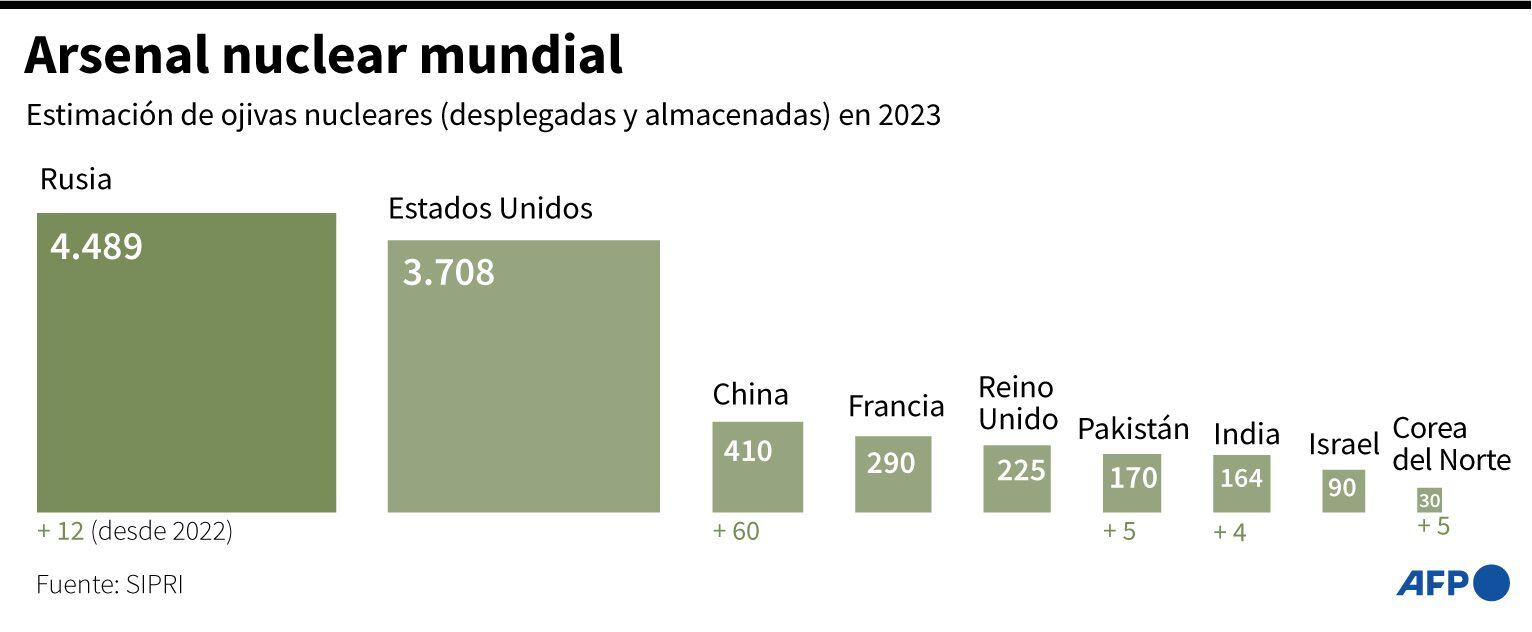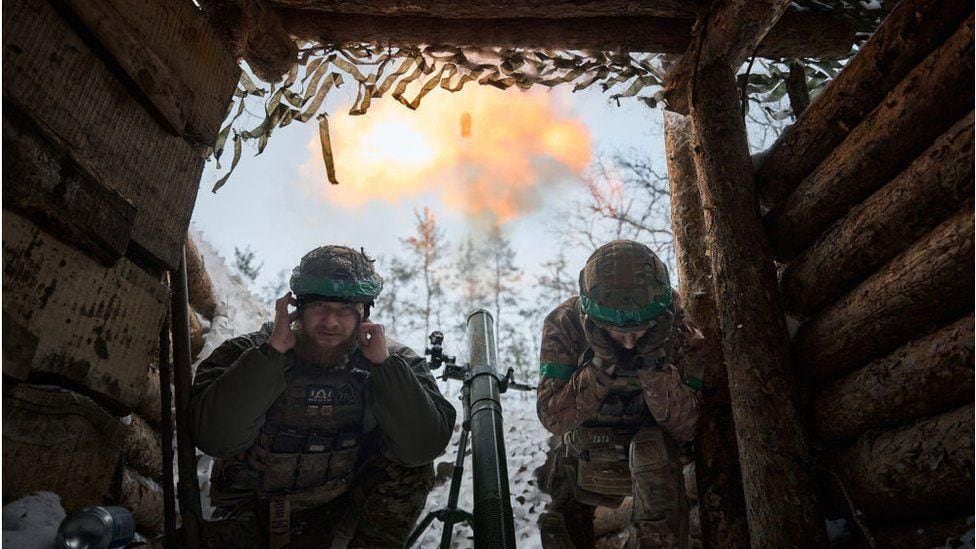Less than a week after the second anniversary of the war in Ukraine, the Russian president, Vladimir Putinrevived the shadow of the nuclear threat over the conflict in an attempt to dissuade the West from expanding its military support to Kiev.
TO LOOK: Why did Transnistria, the breakaway region of Moldova, ask Russia for “protection”?
Putin devoted part of his state-of-the-nation address to both chambers of the Russian Parliament to calling accusations that Moscow is considering attacking Europe “absurd” and warned NATO of the consequences if the Western alliance sends allied troops to Ukraine.
His words came after his French counterpart, Emmanuel Macron, said earlier this week that a possible deployment of Western ground troops to the former Soviet republic should not be “ruled out”, something that, according to Putin, would have consequences. tragic events” over the country. a global scale.
“We remember the fate of those who sent their contingents of troops to the territory of our country. Now, the consequences for potential invaders will be much more tragic,” said the president, who considers Ukraine occupied by Russia to be Russian territory.
“Everything they invent now, with which they scare the whole world, all this threatens a conflict with the use of nuclear weapons and, therefore, the destruction of civilization,” he added.
The Kremlin leader, whose country is the world’s largest nuclear power, emphasized that Russian nuclear forces are “fully prepared” and added that the military has deployed powerful new weapons, some of them tested on battlefields in Ukraine.
The United States on Thursday called Putin’s warning about the risk of nuclear war “irresponsible” but said there were no signs of danger. “This is not the first time we have seen irresponsible rhetoric from Vladimir Putin. “This is not the way for the leader of a nuclear-armed state to speak,” said State Department spokesman Matthew Miller.
Putin is pleased with the latest Russian advances on the battlefield, and the president is also expected to be re-elected this month in an election in which he has virtually no rival.
Putin has not missed the opportunity to remind the world of the Kremlin’s nuclear power since he began the invasion of Ukraine in February 2022.
Russia transferred tactical nuclear weapons to neighboring Belarus last year, and several reports this month have reported that Moscow is trying to develop a nuclear space weapon that could destroy satellites, something Putin has denied.
In what scenarios could Moscow use tactical nuclear weapons? Secret documents from 10 years ago obtained by the Financial Times shed some light and include presentations to Navy officials outlining operational principles for the use of nuclear weapons. In all cases, its use aims to respond to a critical situation for the security of the Russian State.

The documents appear to indicate that Russia foresees the possibility of resorting to tactical nuclear weapons in response to an atomic attack or if it detects that a foreign missile threatens its territory, also in the event of serious difficulties for its Army, and even if an invasion occurs the loss of part of its territory or the loss of part of its submarines with ballistic missiles, reports the newspaper “La Nación”.
“A separate training presentation for naval officers describes broader criteria for the possible use of nuclear weapons, including an enemy landing on Russian territory, the defeat of units responsible for securing border areas or an imminent enemy attack using conventional weapons”, he adds the middle.
Among other objectives, the Russian military could also use nuclear weapons to “contain states that resort to aggression”. […] or prevent the escalation of military conflicts,” “deter aggression,” prevent Russian forces from losing battles or territory, and make the Russian navy “more effective.”
Regarding the possible sending of troops to Ukraine raised by Macron, Western countries have tried to distance themselves from this possibility.

The United States, Germany, United Kingdom, Spain and other allies of Kiev opposed this measure this Tuesday, the 27th, and denied the possibility of sending troops.
“The United States will not send troops to fight in Ukraine,” said National Security Council spokeswoman Adrienne Watson, specifying that the “path to victory” involves congressional approval of blocked military aid.
Germany, Spain, Italy, Poland, Sweden and the Czech Republic spoke in the same vein. The United Kingdom assured that it does not foresee a “large-scale implementation”.
Source: Elcomercio
I am Jack Morton and I work in 24 News Recorder. I mostly cover world news and I have also authored 24 news recorder. I find this work highly interesting and it allows me to keep up with current events happening around the world.

:quality(75)/cloudfront-us-east-1.images.arcpublishing.com/elcomercio/QPNFWYWH2JCFXBENE4UC2Z46NQ.jpg)

:quality(75)/cloudfront-us-east-1.images.arcpublishing.com/elcomercio/527CU7W57JGXBBFW2KP2OXLAYU.jpg)

:quality(75)/cloudfront-us-east-1.images.arcpublishing.com/elcomercio/7ODFOJJP25A25KGMCRUMUKPBAY.png)
:quality(75)/cloudfront-us-east-1.images.arcpublishing.com/elcomercio/NPGHRUBPNJF4TL3NDLMWADDM3Y.jpg)
